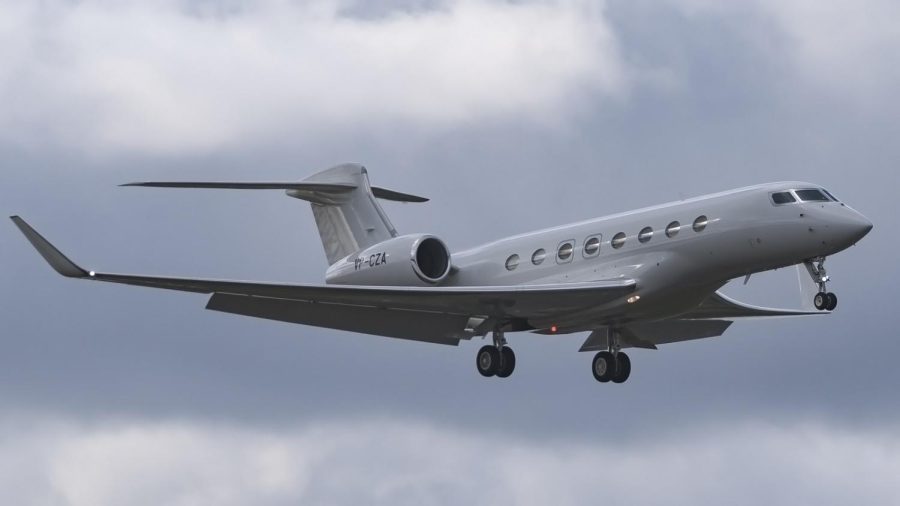The Banning of Private Jets
With climate change producing unexpectedly frightening statistics and ramifications, the world is growing more and more desperate to cut back on carbon emissions. Thus far, electric vehicle sales have skyrocketed, global renewable energy use has increased by 15% since 2021, and the use of private jets has been brought into controversy.
October 10, 2022
Private jets, or private charters, according to an article in Time Magazine, make up for 2.5% of global CO2 pollution, with “just under one billion tonnes of carbon dioxide emissions annually.”
Additionally, according to the European Federation for Transport and Environment, charter planes are responsible for “14 times more polluting than commercial planes (per passenger), and 50 times more polluting than trains, a gap which will grow as private jet users move towards aircraft which are bigger and more polluting than their commercial alternatives.”
In the heat of the pandemic, wealthier demographics of travelers (especially in Europe) began taking to the skies in chartered planes in order to avoid the health risks at hectic and overcrowded public airports.
According to Chris Bryant’s article in The Washington Post, “green politicians in France are demanding an outright ban on such aircraft, which often fly empty and produce several times more emissions per person and mile traveled than flying commercial.”
“The French government is considering new taxes and regulations on the industry and plans to consult European partners about the issue in the autumn,” Bryant said.
Despite the private aviation industry’s goal to have net zero emissions by the year 2050, There is a very low chance that France could really ‘ban’ the use of private aircraft since, according to Bryant, “France is the home of Airbus SE and Dassault Aviation SA (manufacturer of Falcon jets); Paris and Nice are also among the busiest European destinations for private jet flights.”
Unless private aviation companies are willing to lose business in France or elsewhere, governments and regulators must find a way to address CO2 emissions without threatening the legitimacy of the industry.
According to the European Federation for Transport and Environment, there are a few ways we can accelerate the industry’s effort to have zero emissions. Firstly, private charter consumers could be taxed an amount based on their environmental impact by considering fuel used, aircraft weight, and distance traveled to discourage private travel.
Additionally, regulators could “permit the use of hydrogen or electric aircraft powered with green hydrogen and electricity for private jet flights under 1,000km within Europe.”
Ultimately, it is the consumer that makes the decision to travel at the environmental expense of 10 others. If it is the spenders who make the conscious decision to exchange the environment for their own luxury, then it is up to the charter companies to offer exclusively eco-friendly options.

















